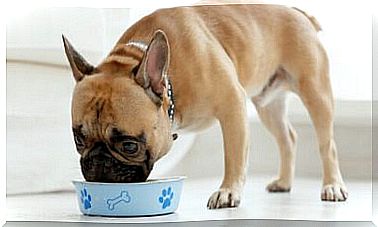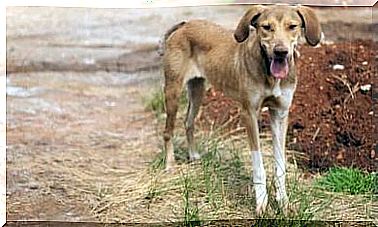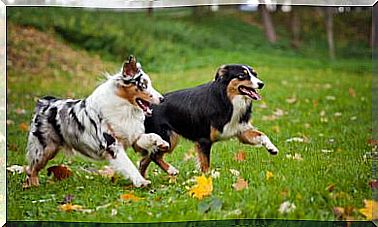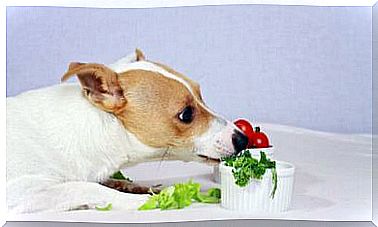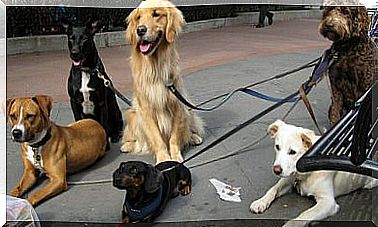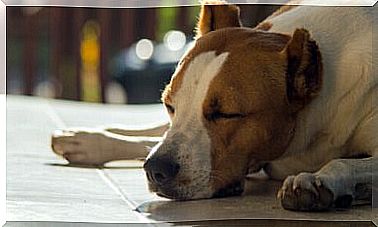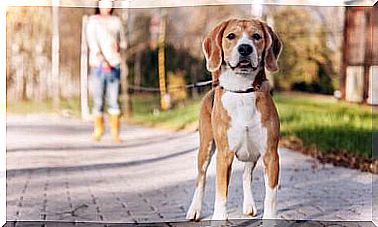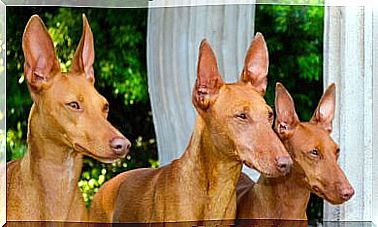British Shorthair Diet: How It Should Be To Keep It Healthy
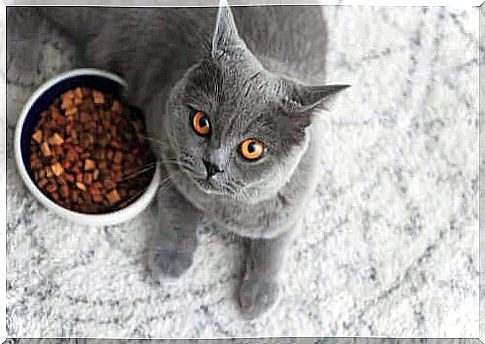
The diet of the British shorthair must be planned with care, on a par with that of any cats or other animals under our care. This breed is quiet and affectionate with the family and generally has a good character. Nonetheless, it can sometimes be a bit distant before becoming familiar with a person.
Once comfortable in our presence, the British shorthair is very affectionate, but without being clingy. The coat is short, soft and fairly easy to keep in good condition if brushed regularly.
As for the size, the weight of this breed fluctuates from four to seven kilos; finally, it features a wide range of colors and patterns.
What you need to know about the British shorthair
The British shorthair is a massive breed with a short, glossy coat, but some varieties have long hair. These cats have a thick coat of fur which often makes them appear larger than they are.
They are not only a lovely and affectionate breed, but also a healthy one. British shorthairs, in fact, need a simple brushing a few times during the week to keep their coat in good condition. Other than that, they don’t tend to suffer from serious health problems.
The only potential problem is a heart disease known as hypertrophic cardiomyopathy. However, it is possible to reduce the risk through responsible procreation, as it is a hereditary disorder.
How to improve the British shorthair’s diet?
All cats, including the British shorthair, have the same nutritional needs. Adult cats must receive at least 26% protein from their diet, while kittens at least 30%. Fats, on the other hand, are an indispensable source of energy, as well as essential fatty acids for the health of the skin and coat.
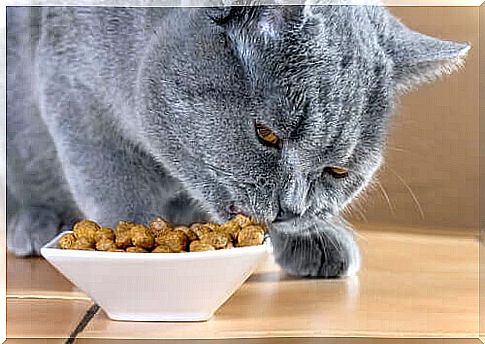
Other healthy ingredients are fresh fruits and vegetables as natural sources of essential nutrients, as well as probiotics for digestion. In the following lines we list the nutrients that cannot be missing in the British shorthair’s diet.
Animal proteins
Cats are carnivorous animals by nature, which is why their diet must include animal sources such as meat and fish.
Animal proteins allow the formation of muscles and hard tissues. On top of that, they help the cat maintain lean muscle mass.
Omega fatty acids
The diet of the British shorthair, as well as most cats, must be made up of at least 9% fat. The ideal is that it is omega 3 and omega 6 fatty acids in order to protect the skin and coat, as well as provide energy to the animal.
The British shorthair’s diet must be low in carbohydrates
Being carnivorous animals, the body of cats is not able to digest plant foods correctly. The diet of the British shorthair, therefore, must be low in carbohydrates, which must come from easily digestible sources such as fruit and vegetables.
Keep your calories in check
The British shorthair is a large breed, but if he eats too much he can easily suffer from obesity. In particular, it is useful to limit the intake of calories by older cats.
In the case of adults, it is possible to keep weight under control thanks to a diet rich in protein and low in fat.
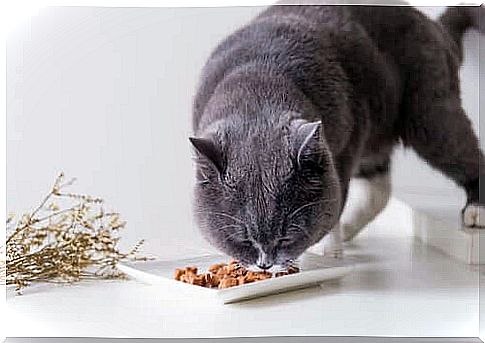
In summary, the ideal British shorthair diet includes healthy ingredients such as animal proteins and fats, as well as a limited amount of fresh fruit and vegetables to ensure proper nutritional balance. Supplements such as probiotics are also recommended to be offered to the pet.
When should the British shorthair be eaten?
The amount of food to be given to the cat will depend on the age, weight and exercise performed. Puppies need to eat more than adults because they are developing. Once grown, however, the diet must be revised in order to avoid excess calories and thus maintain a healthy weight.
The ideal is to consult the veterinarian about the advice and the doses of food to offer to the animal. These, in fact, vary according to the age and weight of the cat.
Adult cats typically eat twice a day, while kittens can be offered up to five small meals a day to ensure their proper development. The adult British shorthair, however, must have enough food available to meet their energy needs without making them obese.
